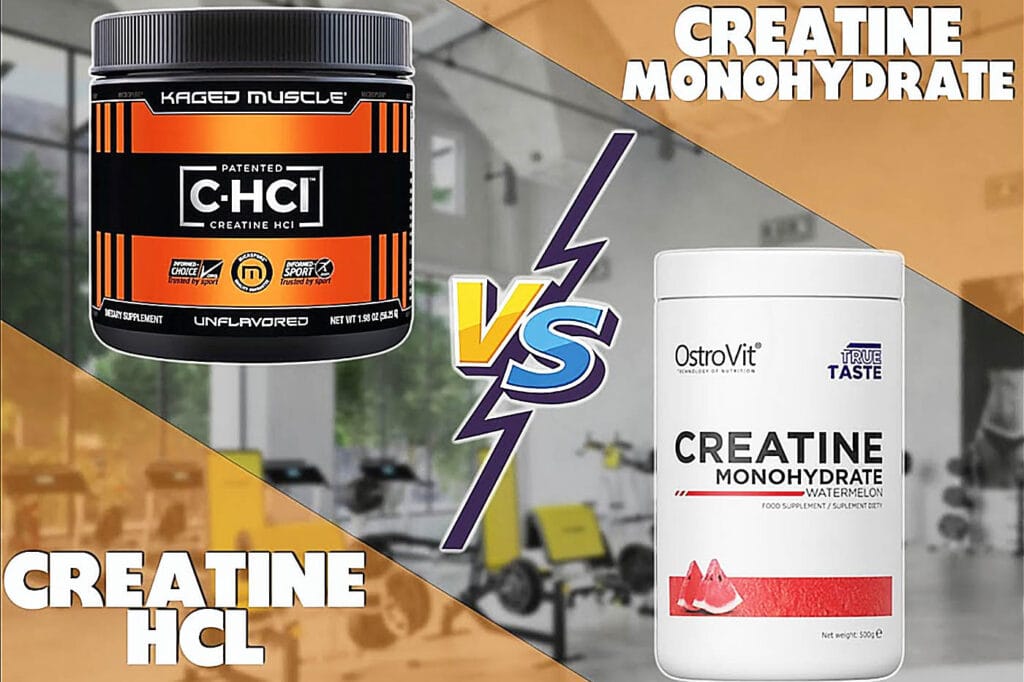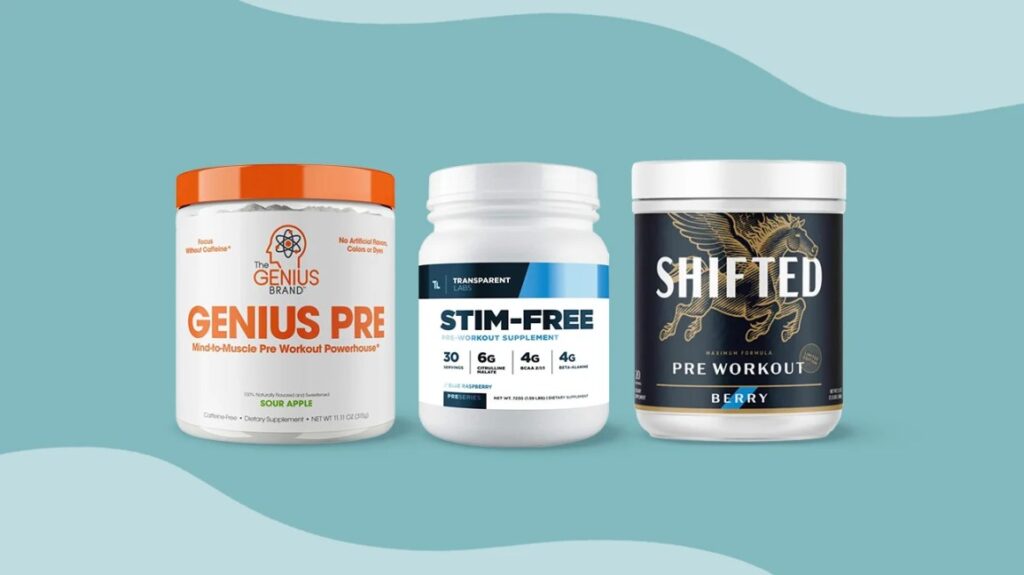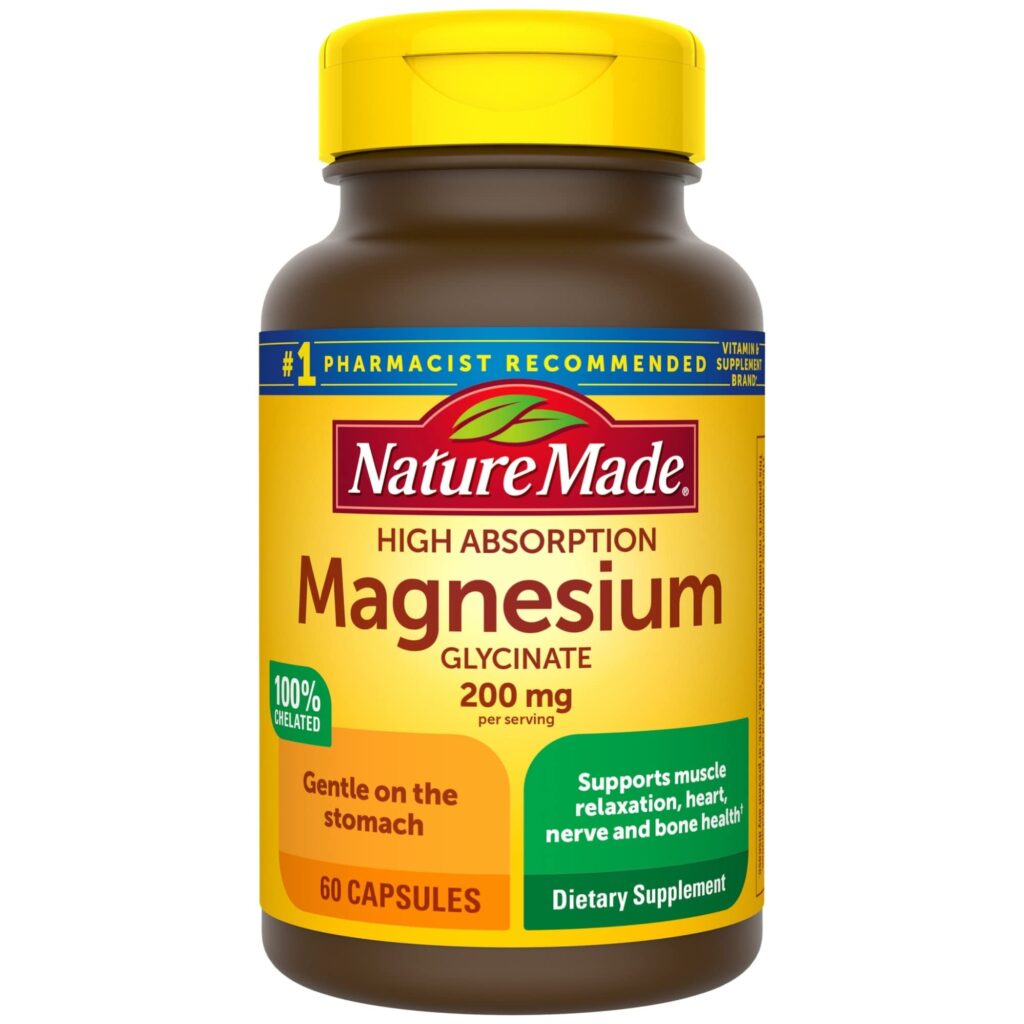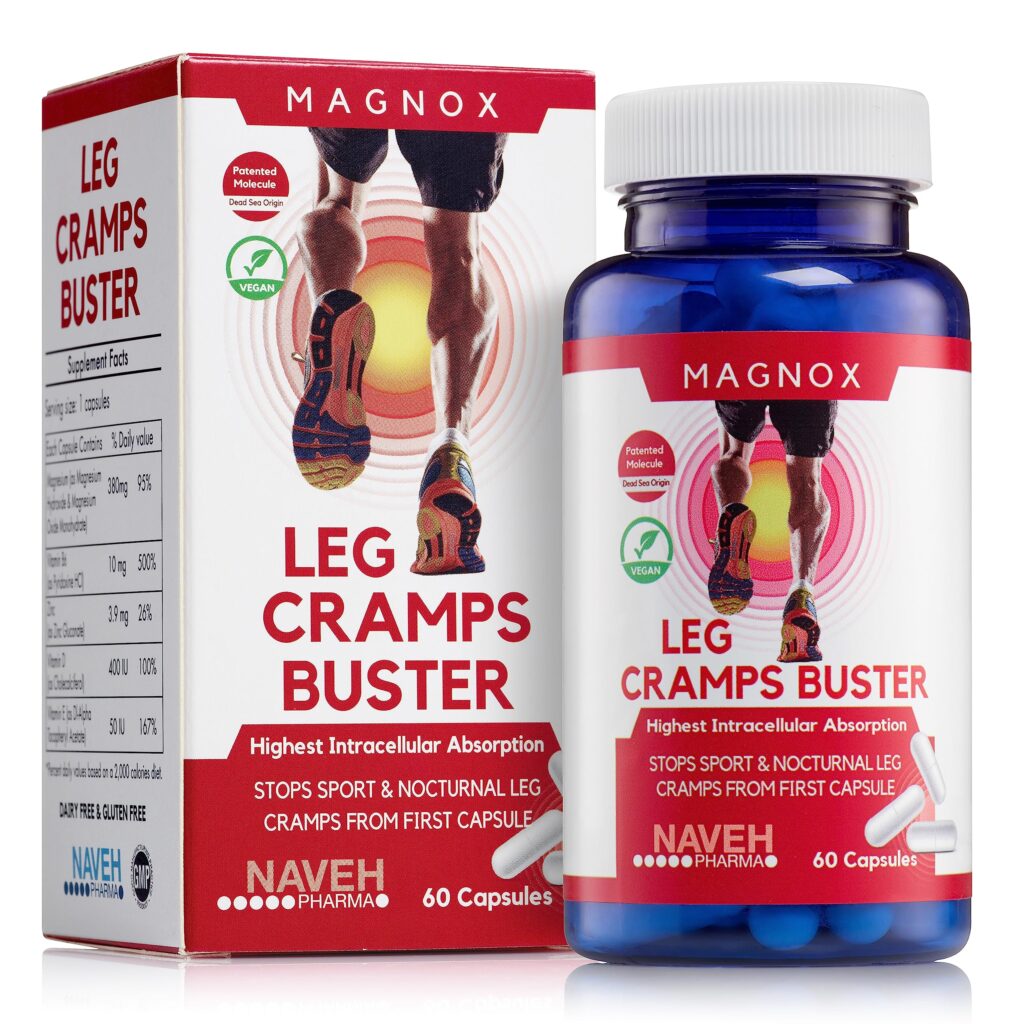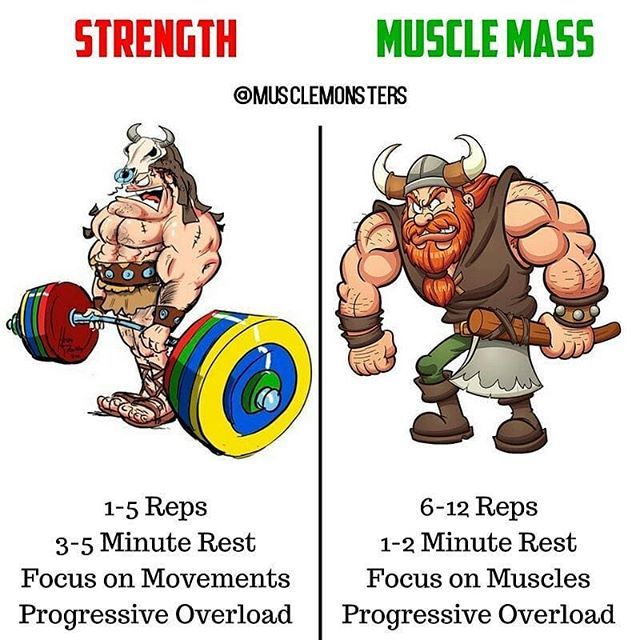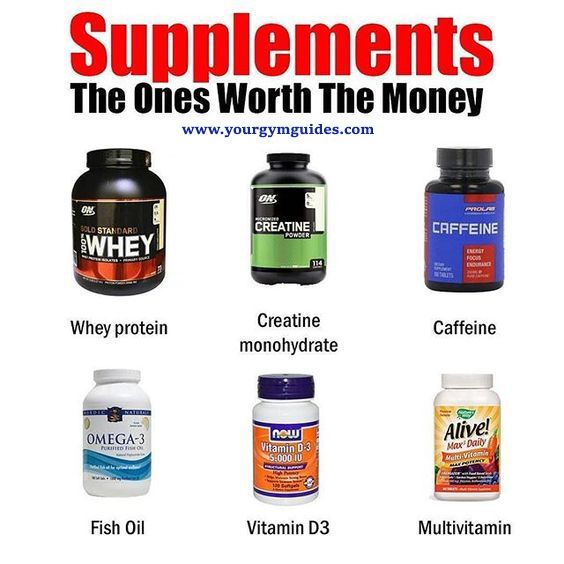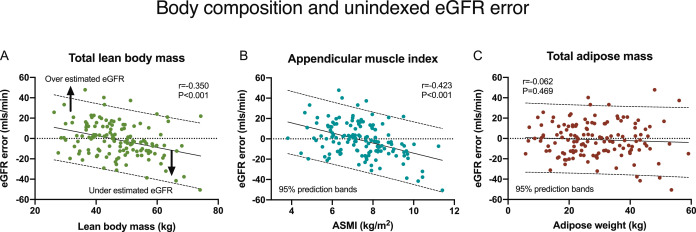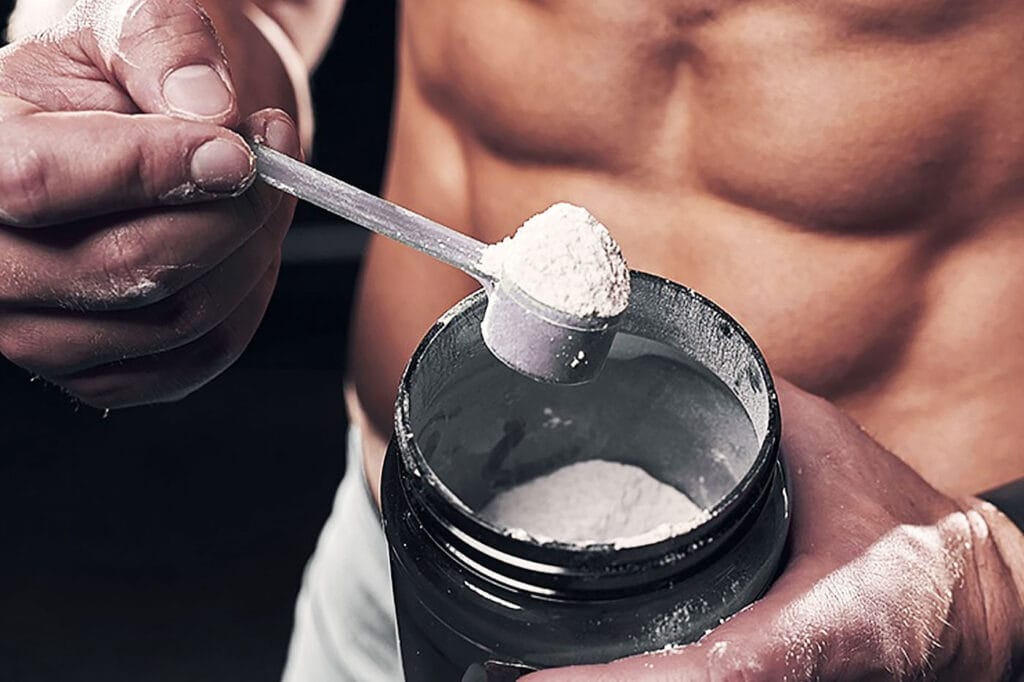Creatine monohydrate and creatine HCl differ primarily in solubility. Creatine HCl is more soluble in water than creatine monohydrate.
Understanding the differences between creatine monohydrate and creatine HCl is crucial for fitness enthusiasts and athletes seeking to enhance their performance. Creatine monohydrate, the most researched form of creatine, is praised for its effectiveness in increasing muscle mass and strength.
On the other hand, creatine HCl boasts a higher solubility, which some suggest might allow for better absorption and less stomach discomfort. Users often choose between them based on factors like personal tolerance, preferred dosage, and overall goals. Meticulous manufacturing ensures that both forms meet purity standards, leaving consumers with the choice of which type best complements their workout regimen. Selecting the right form of creatine can be a vital component of an optimized supplementation strategy.
Introduction To Creatine
Creatine plays a vital role in energy production in muscles. Athletes and fitness enthusiasts use it to improve performance and workout intensity. This substance helps the muscles produce energy during heavy lifting or high-intensity exercise. Creatine supplementation boosts the natural levels within the body, potentially leading to better muscle recovery and increased strength.
Research shows that creatine monohydrate is one of the most researched forms of creatine available. It’s known for its effectiveness and safety. On the other hand, creatine HCl is newer and claims improved solubility and absorption. Understanding the nuances between these two can help individuals tailor their supplementation strategy to fit their specific fitness goals.

Credit: www.stack3d.com
Unpacking Creatine Monohydrate
Creatine monohydrate stands as a popular supplement among athletes. It consists of a creatine molecule paired with a water molecule. This simple structure makes it highly stable and easily absorbed by the body. Athletes and fitness enthusiasts favor it due to its long track record and extensive research support.
The use of creatine monohydrate spans years with a strong reputation for safety and efficacy. Numerous studies attest to its role in enhancing exercise performance. It improves strength, power output, and muscle endurance. This makes it the go-to choice for those looking to up their fitness game.
| BENEFITS | MONOHYDRATE | HCL |
|---|---|---|
| Structure | Stable, simple | Smaller, different |
| Popularity | High | Growing |
| Performance | Proven benefits | Emerging studies |
Diving Into Creatine HCL
Creatine HCL (Hydrochloride) stands out with its unique composition. It attaches hydrochloride groups to creatine molecules. This change boosts its solubility in water significantly. Compared to creatine monohydrate, the HCL form dissolves quicker in fluids. It means your body can absorb it faster and more easily.
This improved solubility suggests potential benefits for athletes. Higher absorption rates may lead to less stomach discomfort and a reduced need for loading phases. There’s a belief that HCL might offer the same effects as monohydrate, but with smaller doses. This efficiency proves advantageous for those seeking enhanced performance with minimal supplementation.
Bioavailability And Efficacy
The body needs to absorb creatine to use it. Creatine Monohydrate is popular and affordable. But the stomach may not always like it. Some people feel sick. Creatine HCL claims to fix this. Its smaller particles may help digestion.
People claim that muscles can absorb creatine HCL better. Studies show it might need smaller doses than Monohydrate. This suggests HCL could be more effective for some users. Still, many athletes stick with Monohydrate for its track record.
| Creatine Type | Pros | Cons |
|---|---|---|
| Monohydrate | Cheaper, well-researched | May cause discomfort |
| HCL | Better absorption, less side effects | More expensive, less research |
Side-by-side Comparison
Creatine Monohydrate often has a lower price than Creatine HCl. People looking for a cost-effective supplement might prefer Monohydrate. Creatine HCl may be pricier, but some users find the extra cost worth it for its potential benefits.
| Creatine Monohydrate | Creatine HCl |
|---|---|
| Typically taken in larger doses | Often requires a smaller dose |
| Doses can range from 3-5 grams daily | 1-2 grams daily might be enough |
| Some prefer to load with 20 grams for 5-7 days | Loading phase not usually necessary |

Credit: nancythuytran.medium.com
Taste, Mixability, And Convenience
Creatine Monohydrate is known for its gritty texture and somewhat sour taste. Many users find it challenging to dissolve in liquids fully. On the other hand, Creatine HCl generally offers a better taste experience and dissolves more easily, leading to fewer issues with grit or sediment at the bottom of the glass.
People often prefer Creatine HCl for its higher solubility. This means it can be quickly mixed into beverages. The great mixability makes it convenient for consumption anywhere. Creatine Monohydrate, while less convenient, can still be a part of one’s diet with effort.
Research And Studies
Supporting Scientific Evidence shows that both creatine monohydrate and creatine HCL can boost muscle strength. Studies indicate that creatine monohydrate is highly effective due to its stability and cost-effectiveness. Creatine HCL, on the other hand, claims a higher absorption rate. This means you can take a smaller dose. Yet, many research pieces often use older populations. This limits the application of findings to all age groups.
The limitations of current research include small sample sizes in studies. Also, there’s a lack of long-term data.
Divergent findings highlight the need for more comprehensive analysis. Future research should focus on different populations and standardized dosing protocols. This is necessary to fully understand the benefits and side effects of each form.
Real-world Applications
Athlete endorsements often highlight the effectiveness of creatine formulas. Many top sports players share stories of enhanced performance and recovery after taking creatine products. Their experiences show the potential benefits these supplements can provide in high-intensity sports.
Consumer feedback reflects the personal experiences of individuals. Users report creatine monohydrate is cost-effective and provides energy boosts. Others find creatine HCl gentler on the stomach and easier to dissolve in water.
Expert opinions, such as those from sport nutritionists, often underscore the scientific merits of each form. Studies are mentioned that compare absorption rates and biological effects. These insights are crucial for informed decisions on supplement choice.
Final Verdict
Selecting the appropriate creatine form depends on individual preferences and goals. Creatine Monohydrate is well-studied, affordable, and supports muscle growth and strength. Contrastingly, Creatine HCl is highly soluble with a potentially smaller dosage needed. Consider factors like digestive comfort, cost, and personal response to supplementation.
The landscape of creatine supplements continually evolves with scientific advancements. Potential future forms may offer even better absorption and reduced side effects. Always keep an eye on new research to make informed decisions about your supplementation choices.
Frequently Asked Questions: What Is the Difference Between Creatine Monohydrate and HCL?
Which Creatine Is Better HCL Or Monohydrate?
Creatine monohydrate is generally preferred due to its extensive research backing and cost-effectiveness. Creatine HCL may offer better solubility, but it lacks comparative studies demonstrating superior benefits.
Which Form Of Creatine Is Best?
Creatine monohydrate is widely considered the best form due to its efficiency, affordability, and extensive research backing its effectiveness and safety.
Why Take Creatine HCL?
Take creatine HCL to enhance muscle strength, increase power output, and improve workout performance with potentially better absorption and fewer digestive issues than creatine monohydrate.
Is It Okay To Switch From Creatine HCL To Monohydrate?
Yes, switching from creatine HCL to monohydrate is generally acceptable. Always consult your healthcare provider when changing supplements to ensure it align with your health goals.
Conclusion
Understanding the nuances between creatine monohydrate and HCL is crucial for optimizing your workout results. Each form offers distinct benefits, from monohydrate’s extensive research backing to HCL’s enhanced solubility and reduced side effects. Choosing the right type aligns with personal fitness goals and digestive comfort, empowering your journey towards peak performance.

